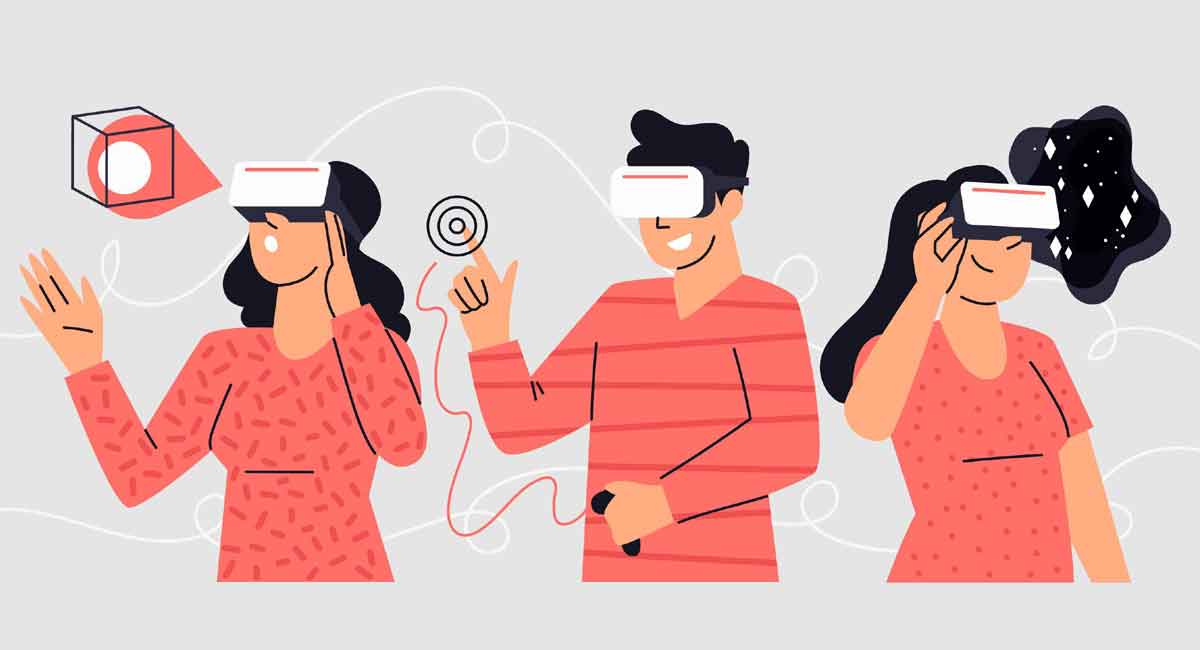Cyber Talk: Digital Rights and Privacy in the Context of Metaverse

The metaverse will allow users to work, meet, game and mingle in these three dimensional spaces. Metaverse will change everything we know about our lives; the way we eat, the way we play games, the way we hang out with our friends or the way we work. We’ve all seen movies like Matrix, Black Mirror and Ready Player One, all of which featured the nearest experiences of Metaverse.
We have begun to value what we experienced online during the pandemic work from home scenario (a) how many followers we have for our profile, (b) how many likes we have for our photos, (c) how many views we get for our story, (d) how we look in digital life. Why we do it is because we judge our value and worth by the above metrics.
This has begun to provide opportunities for the Metaverse to accelerate more and more. We have also seen Microsoft investing $70 billion in Activism Blizzard for gaming and Google investing $40 million in private equity firms for Metaverse and so on. We have also seen Nike and Adidas selling digital shoes in Metaverse.
How is Metaverse better equipped?
Metaverse is a decentralised structure. Property rights are cryptographically enforced. It’s an open source code. The data is transparent. Accesses are permission-less. Ownership is Community. Identity is user controlled. Content policy is user choice. User acquisition is by incentive. You can socialise directly and finally, display systems are diverse.
Impact of Metaverse
Walking around in 3D version in this alternate universe might look thrilling for all of us. But it comes its own set of positives and negatives.
Digital artists are making virtual worlds with their canvas and creating new forms of expression. It definitely has positive impact on our daily lives. It can be of great use in fields like overcoming obstacles for disabled, enhancing creativity and imagination, travelling the world without moving, increasing technology literacy and skills, connecting with new people without being awkward, creating new job opportunities, meeting your loved ones whenever you want, more possibilities for education and finally giving opportunity for self-expression.
At the same time, Metaverse is also creating new possibilities of online abuse that may include sexual harassment, racist comments, violent threats. Most new Metaverse users feel it is not safe for all.
Privacy breaches in Metaverse
Our entire digital identities, gender, age, ethnicity, body weight, personality traits, habits, emotions, skills and abilities, fears, interests and sexual preferences are replicated in the virtual world. Does this mean we are risking our privacy? Are we marching towards invasive data collection and a ubiquitous surveillance approach?
For argument’s sake, let’s see what can be tracked in virtual world.
(a) Mental health condition (b) Personality traits (c) Level of sleepiness (d) Process of cognition (e) Skills and abilities (f) Mental workload (g) Physical health (h) Geographical origins (i) Ethnicity (j) Cultural Affiliation.
Digital Rights in Metaverse
We cannot draw any hard distinction between digital and non-digital rights. There is a monotonic decrease in the openness of our virtual world where we once had the worldwide web, which was relatively wide open. The challenges for digital rights in Metaverse are how the assets, data and interactions are governed.
1. In the virtual world, all transactions (digital assets) are monetised in the form of either cryptocurrency or NFTs, and this digital asset could be an image, or music, or a video, or a 3D object and how are we dealing with the ownership, irrespective of it being licensed or serviced.
2. Data protection and processing of personal data, which includes facial expressions, gestures, and other types of reactions to an avatar in the virtual world, should be taken care of.
3. During interactions with other avatars in virtual world, a dispute may arise that is equivalent to a criminal offence, such as assault, murder, burglary, or rape, how are we dealing with it.
Conclusion
We are aware that people are buying digital currencies, digital assets and digital spaces. Metaverse has thrown a plethora of challenges and we are at the very beginning of the revolution of the virtual world. The full implications of technology like Metaverse are yet to unveil. The core important elements of digital rights in virtual world are how the (a) assets are transacted, (b) how data is consumed, (c) how the interactions are governed.
Stay tuned to Cyber Talk for more on internet ethics and digital wellness brought to you by Anil Rachamalla of the End Now Foundation, www.endnowfoundation.org







